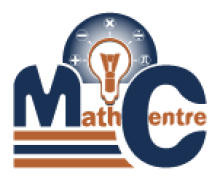Published - Sat, 11 May 2024

Empowering Mathematics Education: A Recap of the 10-Day Workshop at Kleruu Teachers College
In the digital age, mathematics is undergoing a profound
transformation to meet the demands of modern education. A recent workshop at
Kleruu Teachers College in Iringa aimed to equip math teacher educators with
the skills and tools necessary to engage and interact with online content. Over
the course of 10 days, Math Centre facilitators investigated various strategies
for integrating technology into the teaching and learning of mathematics,
fostering a dynamic and inclusive learning environment. Central to the workshop
was the exploration of interactive teaching methods designed to enhance
mathematics teacher educators’ engagement and understanding. Facilitators explored
innovative approaches such as gamification, problem-based learning, and
collaborative activities. By incorporating elements of interactivity into the
lessons, mathematics teacher educators can cater to diverse learning styles to
actively participate in their teaching and learning of mathematics. Through
hands-on activities and group discussions, participants gained practical
insights into how these methods can be effectively be implemented in both
physical and virtual classrooms.
In today's digital era, information
and communication technologies (ICT) play a pivotal role in mathematics
education. Recognizing the importance of ICT integration, the workshop
emphasized the use of digital tools and platforms to enrich the teaching and
learning of mathematics. From the use of blackboards to educational apps and
online simulations, facilitators explored a myriad of resources aimed at
enhancing mathematics teaching and learning. By connecting to the power of
technology, teacher educators can create dynamic lesson plans, provide
personalized learning experiences, and facilitate meaningful interactions among
student teachers. Throughout the workshop, participants had the opportunity to
apply their newfound knowledge and skills through hands-on activities and
project-based learning. From designing interactive online tutorials to
developing digital assessments, facilitators worked collaboratively to create
engaging content tailored to the needs of mathematics teacher educators. By
leveraging a variety of digital tools and platforms, mathematics teacher
educators will gain confidence and ability to deliver effective and impactful
mathematics instruction in both traditional and online settings.
The 10-day workshop at Kleruu
Teachers College served as a catalyst for empowering mathematics teacher
educators to embrace the power of technology and interactive teaching methods
in the classroom. By fostering collaboration, creativity, and innovation, the
workshop laid the foundation for a more dynamic and inclusive approach to
mathematics education. As educators continue to explore new possibilities and
push the boundaries of traditional pedagogy, the future of mathematics
education looks brighter than ever before.
Created by
Comments (1)

Frederick Julius Msangi
Building Bridges
Faculty Exchange Programs: Encourage faculty to teach workshops or guest lecture at other institutions, fostering cross-pollination of ideas and expertise.
Joint Research Projects: Collaborate on research projects that address common challenges in teacher education. This builds relationships and leads to shared knowledge.
Consortiums and Networks: Establish regional or national networks of teacher educators to share best practices and resources.
Sharing Resources:
Online Course Modules: Develop online modules on specific topics that can be easily shared and adapted by other institutions.
Curriculum Development Workshops: Host joint workshops where teacher educators from different institutions work together to develop or refine curriculum.
Digital Resource Sharing Platforms: Create online platforms where teacher educators can share lesson plans, teaching materials, and other resources.
Funding and Recognition:
Grants for Collaboration: Advocate for grants that specifically support inter-institutional collaboration in teacher education.
Awards and Recognition: Recognize and celebrate successful collaborations between institutions to inspire further partnerships.
These are examples of collaboration let put together our effort to foster inter-institutional collaboration
Search
Popular categories
INTERACTIVE TEACHING METHODS
17COLLEGE BASED PD MODELS
3MORO MATH CENTRES
3ZANA ZA KUFUNDISHIA HESABU
1Latest blogs

MAJADALA WA MADA YA KUANDAA SHUGHULI ZA UFUNDISHAJI
Tue, 21 May 2024

MAJADILIANO KUHUSU MAADA YA MIFANO YA MBINU SHIRIKISHI
Sat, 18 May 2024

MAJADILIANO KUHUSU MAADA YA MIFANO YA MBINU SHIRIKISHI
Sat, 18 May 2024

Write a public review